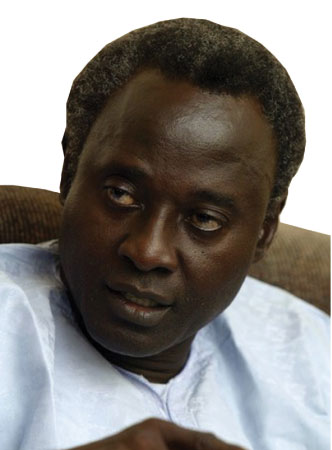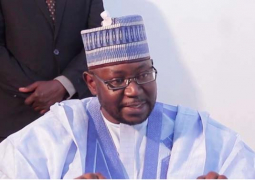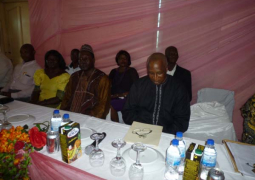
The demand for what they referred to as a “level playing field” by members of the opposition camp in the country is showing no sign of abating, with continued calls for the Chairman of the Independent Election Commission (IEC) to vacate his office, which they said is being occupied unconstitutionally.
In an interview with The Point, Halifa Sallah, Secretary General of the opposition Peoples Democratic Organisation for Independence and Socialism (PDOIS) and spokesperson for the Group of Six opposition parties, said the opposition have no personal vendetta against the IEC Chairman, Alhagie Mustapha Carayol.
“The essence is the constitutionality of his continued occupation of the office of member and Chairman of the IEC,” Sallah told The Point.
Noting that the performance of the IEC boss may even be given a favourable grading by some political parties, Sallah cited 42 of the Constitution to back his arguments.
The constitutional provision states that (1) there shall be an Independent Electoral Commission for The Gambia which shall be part of the public service; (2) The members of the Commission shall be a Chairman and four other members; and (3) The members of the Commission shall be appointed by the President in consultation with the Judicial Service Commission.
According to him, subsection two limits the term of office of members to a maximum of two seven-year terms.
“It states that subject to the provisions of this section, the members of the Commission shall be appointed for a period of seven years and may be re-appointed for one further term provided that three of the first members (who shall be chosen by lot) shall be appointed for lesser periods than seven years in order to provide continuity within the Commission,” Sallah stated.
Sallah, who lost to President Jammeh in the 2006 presidential election, opined that having served for 14 years, the person occupying the post should be given an honourable send off and all political parties would have had something good to say about him.
“We have written to him without receiving any response. We have written to the Attorney General without receiving any response. It would be unfortunate if they wait until it becomes an international issue to act,” he said.
On the fate of the Group of Six opposition parties, Halifa said the Group is “focused” and committed to electoral reform so that The Gambia could have a genuine multi-party system.
The Group of Six, he added, intends to work to ensure that all public servants, institutions and resources are not used to the political advantage of one political party to the detriment of others, but will also work to ensure that candidates contest on equal platforms, and there is no significant abuse of incumbency.
“Section 26 of the Constitution categorically states that there should be no unreasonable restriction to people’s participation in elections, either as voters or candidates. We will work to end all restrictions of people’s participation either as a result of age or residence in the Diaspora,” he stated.
Furthermore, Sallah went on: “We intend to work for the restoration of the second round of voting so that all parties could put up candidates to deny the incumbent victory in the first round and then form a strategic alliance in the second round, as had happened in Senegal.”
He noted that this should put an end to all rivalries between opposition parties as each works to build up a genuine political base, which could be put together in the second round.
Sallah also expressed the Group of Six’s commitment to work for the opening up of the public media to divergent views and dissenting opinion.
“We are working on a consensus building document which would ultimately be released to the public,” he said, adding that this would be preceded by a press release immediately after the end of the month of Ramadan.
Political situation
Commenting further, Halifa said the current political situation in The Gambia is illusive to those who prefer to focus their attention on trivialities.
In his view, those who are in touch with developments would know that The Gambia is undergoing its most decisive political transition since the two-year transition programme of 1994 to 1996.
“The reason why many people are not aware of the initiatives being undertaken is because the changes being sought are being pioneered by the opposition, and not the ruling party or government,” he stated.
Noting that the Group of Six does not want to appear to be engaged in a partisan propaganda exercise, Halifa said they are engaged in wide consultation, and must give the concerned parties enough time to do their ground work with independence and impartiality.
The Group of Six, he stated, does not want any intermediary to have the impression that they are paving the way for the opposition to come to power.
“We want the actions of each intermediary to be bound by the aim to facilitate that genuine elections take place in The Gambia, no matter who ultimately becomes the beneficiaries of electoral reform,” he added.



